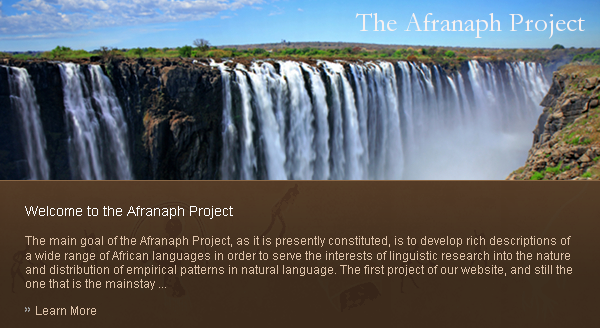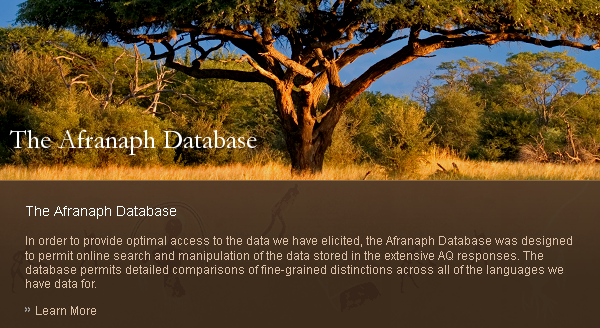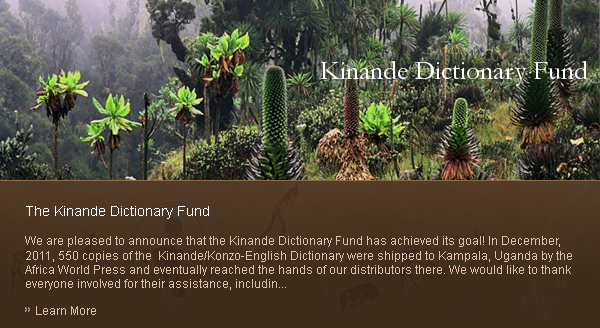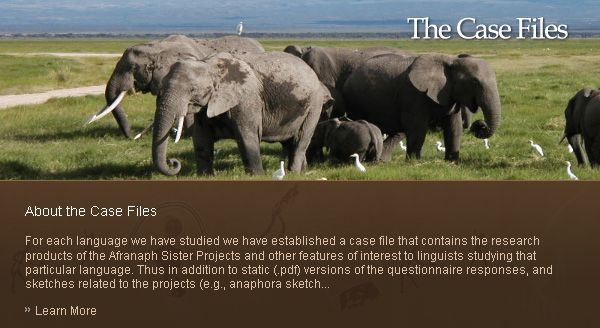- Last Updated on Thursday, 09 January 2020 16:41
The Director’s Blog
August, 2018
After 15 years of directing Afranaph, it may seem a bit late in the day for me to begin a blog about our project, but it is precisely because I am in the last years of directing Afranaph that it seems time to reflect on where we are and what the future of the project should be.
When the project began in 2003, it was intended as a temporary funding mechanism to support African visitors to the joint ACAL and WOCAL that took place at Rutgers in 2003 (at the behest of my colleague, Prof Akin Akinlabi, a driving force behind so many initiatives and organizations in African linguistics). I knew almost nothing about African linguistics, but since one of my specialties was the crosslinguistic comparison of anaphora systems, I thought we might pay conference participants for filling out a questionnaire designed to elicit anaphora facts. I would follow up with them online afterward and then I would post the results on a public website. It was also a way of supporting one of our graduate students, Oluseye Adesola, who was the first research assistant (RA) on the project. I thought it was going to be “one and done”.
However, the idea wouldn’t die. Seye convinced me that the project could be very useful to the African linguist-consultants in particular, many of whom felt isolated from participation in the wider community of linguists. Our department needed the income to take pressure off our graduate student funding. NSF liked the idea it was using new advances in technology to build an online research community focused on advancing our understanding by targeting very specific issues based on data from understudied languages. A number of our consultants were enthusiastic. It was put to me that I should not let it die. I was in a position to make it work, but it was up to me to write the grant and see it through to actually get it done. Well, I did, and after a few years…yes, a few years, I wasn’t sorry. There is a reason I am talking about this now.
The NSF grant that we have just secured will be the last one that I direct because I shall be retiring at Rutgers soon after the grant expires. We need to determine whether there is sufficient will and need to continue Afranaph as an ongoing enterprise, or whether it should remain online as a resource, but without growing. To determine the need for an ongoing project, we want input, constructive, testimonial, or even negative, from the Afranaph community, including active contributors and those who use our site and database. To determine the will, we need to identify the next generation of leaders for the project who have a vision for what the project can be, the who have the willingness to take on the responsibilities of running the site, and who have the access to resources, funding and infrastructure in particular, that permit us to support all of our activities. Finding such leadership is the challenge we face in the next several years.
As announced on our events page, I have appointed a Board of Directors will plan for, and hopefully be the kernel of, our new leadership team. I am confident that they will find a better formula for Afranaph in the future, one that spreads responsibility for Afranaph functions across a wider set of venues.
If you are one of the few people who actually reads this blog, I am interested in your opinion of our project as it is now and your ideas for what it could be. You can write to me at This email address is being protected from spambots. You need JavaScript enabled to view it.. I need your feedback, which I will pass on to the Board, and I may end up discussing it in this space.
I do not intend, however, for the blog to become just an internal newsletter. Future entries will be about the experience of doing Afranaph research, the research itself, and the research relationships that have made it so much fun.






